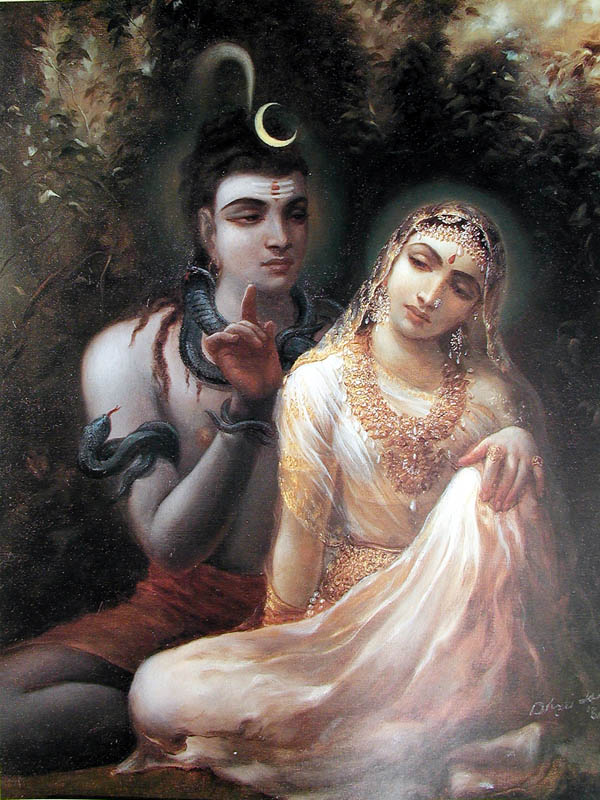Question: I just read Digest 169 which was about Arjuna’s material attachment. In that it was mentioned that Arjuna was an eternal associate of the Lord, so there was no question of his being under illusion, and the Lord chooses his devotee to give the message to human kind. In this regard, I have a doubt when it is said that Lord Shiva was bewildered by Maya or illusory energy of the Lord when he was under the meditation and as a result Kartikeya was born. Was it not the plan of the Lord to kill the demons? I really fail to understand how Lord Shiva, being an expansion of the Lord Himself and the greatest devotee, can be influenced by the illusory energy. Please clarify the doubt.
Answer by Romapada Swami: Lord Shiva and Lord Brahma are no doubt highly exalted devotees, heads of entire sampradayas, and are guna-avataras (qualitative incarnations) as well. Although they are controllers in charge of the modes of ignorance and passion respectively, being in constant touch with the modes of material nature, unlike Vishnu they have the tendency or potential to sometimes come under its influence. Pastimes that seem to indicate some apparent discrepancies in their activities, including the one you have indicated and others, are meant to illustrate this fact: except for Lord Vishnu, who is the master of illusory energy and the ONLY entity who can deliver liberation (unless He gifts that specific capacity to another), all other beings in the universe are potentially subject to the influence of the material modes. (Srimad Bhagavatam 1.2.23-24)
We do know however, that fully surrendered devotees of Lord Krishna can also transcend the modes of nature. (Bhagavad Gita 7.14, 14.26) While we have to understand the unique position of Lord Vishnu being beyond the modes as stated above, we should not mistakenly think that Lord Shiva or Brahma are disposed to improper conduct, nor should we offend them in any other way. At the same time, we are not to become disturbed when we come to know of features that show them to be distinct from Vishnu-tattva (Remember here Bhagavad Gita 9.30 — even in extreme circumstances, they are to be regarded as exalted entities, saintly devotees, but they are *not* equal to Vishnu). Rather, we are to take these features as instructions for us: if even such exalted personalities can become victimized in extreme circumstances by the Lord’s illusory potency, how careful we have to be to take constant shelter of the process of devotional service, which keeps us ever connected with Vishnu or Krishna!
Srila Prabhupada taught us that we should be very careful not to criticize the apparent fall-down or seeming degradation of very powerful and great devotees. Highly advanced devotees are not influenced by apparent transgressions and are faultless. An ordinary person must be very cautious not to criticize such powerful personalities. This is one of the many instructive lessons from the pastime of Citraketu’s apparent offense to Lord Shiva. (See Srimad Bhagavatam 6.17.9-10 purport)
The example is given of the sun which is capable of evaporating a filthy place and still remain uncontaminated, whereas if ordinary persons were to stay in a filthy place they would be infected. Similarly, Lord Shiva is so powerful that he could drink poison and yet remain unaffected; thus his activities cannot be imitated nor are they to be criticized.
Care should be taken, however, that this principle not be misused by unscrupulous persons to transgress social norms.
Therefore, we are recommended to learn proper discernment under the guidance of those devotees who are themselves scrupulously free from all vices.







